- Home
- J. R. R. Tolkien
The Fall of Gondolin Page 7
The Fall of Gondolin Read online
Page 7
Then the warriors of the Mole being more numerous than those few of the Wing, and loyal to their lord, came at Tuor, and there were great blows, but no man might stand before the wrath of Tuor, and they were smitten and driven to fly into what dark holes they might, or flung from the walls. Then Tuor and his men must get them to the battle of the Gate, for the noise of it has grown very great, and Tuor has it still in his heart that the city may stand; yet with Idril he left there Voronwë against his will and some other swordsmen to be guard for her till he returned or might send tidings from the fray.
Now was the battle at that gate very evil indeed, and Duilin of the Swallow as he shot from the walls was smitten by a fiery bolt of the Balrogs who leapt about the base of Amon Gwareth; and he fell from the battlements and perished. Then the Balrogs continued to shoot darts of fire and flaming arrows like small snakes into the sky, and these fell upon the roofs and gardens of Gondolin till all the trees were scorched, and the flowers and grass burned up, and the whiteness of those walls and colonnades was blackened and seared: yet a worse matter was it that a company of those demons climbed upon the coils of the serpents of iron and thence loosed unceasingly from their bows and slings till a fire began to burn in the city to the back of the main army of the defenders.
Then said Rog in a great voice: ‘Who now shall fear the Balrogs for all their terror? See before us the accursed ones who for ages have tormented the children of the Noldoli, and who now set a fire at our backs with their shooting. Come ye of the Hammer of Wrath and we will smite them for their evil.’ Thereupon he lifted his mace, and its handle was long; and he made a way before him by the wrath of his onset even unto the fallen gate: but all the people of the Stricken Anvil ran behind like a wedge, and sparks came from their eyes for the fury of their rage. A great deed was that sally, as the Noldoli sing yet, and many of the Orcs were borne backward into the fires below; but the men of Rog leapt even upon the coils of the serpents and came at those Balrogs and smote them grievously, for all they had whips of flame and claws of steel, and were in stature very great. They battered them into nought, or catching at their whips wielded these against them, that they tore them even as they had aforetime torn the Gnomes; and the number of Balrogs that perished was a marvel and dread to the hosts of Melko, for ere that day never had any of the Balrogs been slain by the hand of Elves or Men.
Then Gothmog Lord of Balrogs gathered all his demons that were about the city and ordered them thus: a number made for the folk of the Hammer and gave before them, but the greater company rushing upon the flank contrived to get to their backs, higher upon the coils of the drakes and nearer to the gates, so that Rog might not win back save with great slaughter among his folk. But Rog seeing this essayed not to win back, as was hoped, but with all his folk fell on those whose part was to give before him; and they fled before him now of dire need rather than of craft. Down into the plain were they harried, and their shrieks rent the airs of Tumladen. Then that house of the Hammer fared about smiting and hewing the astonied bands of Melko till they were hemmed at the last by an overwhelming force of the Orcs and the Balrogs, and a fire-drake was loosed upon them. There did they perish about Rog hewing to the last till iron and flame overcame them, and it is yet sung that each man of the Hammer of Wrath took the lives of seven foemen to pay for his own. Then did dread fall more heavily still upon the Gondothlim at the death of Rog and the loss of his battalion, and they gave back further yet into the city, and Penlod perished there in a lane with his back to the wall, and about him many of the men of the Pillar and many of the Tower of Snow.
Now therefore Melko’s goblins held all the gate and a great part of the walls on either side, whence numbers of the Swallow and those of the Rainbow were thrust to doom; but within the city they had won a great space reaching nigh to the centre, even to the Place of the Well that adjoined the Square of the Palace. Yet about those ways and around the gate their dead were piled in uncounted heaps, and they halted therefore and took counsel, seeing that for the valour of the Gondothlim they had lost many more than they had hoped and far more than those defenders. Fearful too they were for that slaughter Rog had done amid the Balrogs, because of those demons they had great courage and confidence of heart.
Now then the plan that they made was to hold what they had won, while those serpents of bronze and with great feet for trampling climbed slowly over those of iron, and reaching the walls there opened a breach wherethrough the Balrogs might ride upon the dragons of flame: yet they knew this must be done with speed, for the heats of those drakes lasted not for ever, and might only be plenished from the wells of fire that Melko had made in the fastness of his own land.
But even as their messengers were sped they heard a sweet music that was played amid the host of the Gondothlim and they feared what it might mean: and lo! there came Ecthelion and the people of the Fountain whom Turgon till now had held in reserve, for he watched the most of that affray from the heights of his tower. Now marched these folk to a great playing of their flutes, and the crystal and silver of their array was most lovely to see amid the red light of the fires and the blackness of the ruins.
Then on a sudden their music ceased and Ecthelion of the fair voice shouted for the drawing of swords, and before the Orcs might foresee his onslaught the flashing of those pale blades was amongst them. It is said that Ecthelion’s folk there slew more of the goblins than fell ever in all the battles of the Eldalië with that race, and that his name is a terror among them to this latest day, and a warcry to the Eldar.
Now it is that Tuor and the men of the Wing fare into the fight and range themselves beside Ecthelion and those of the Fountain, and the twain strike mighty blows and ward each many a thrust from the other, and harry the Orcs so that they win back almost to the gate. But there behold a quaking and a trampling, for the dragons labour mightily at beating a path up Amon Gwareth and at casting down the walls of the city; and already there is a gap therein and a confusion of masonry where the ward-towers have fallen in ruin. Bands of the Swallow and of the Arch of Heaven there fight bitterly amid the wreck or contest the walls to east and west with the foe; but even as Tuor comes nigh driving the Orcs, one of those brazen snakes heaves against the western wall and a great mass of it shakes and falls, and behind comes a creature of fire and Balrogs upon it. Flames gust from the jaws of that worm and folk wither before it, and the wings of the helm of Tuor are blackened, but he stands and gathers about him his guard and all of the Arch and Swallow he can find, whereas on his right Ecthelion rallies the men of the Fountain of the South.
Now the Orcs again take heart from the coming of the drakes, and they mingle with the Balrogs that pour about the breach, and they assail the Gondothlim grievously. There Tuor slew Othrod a lord of the Orcs cleaving his helm, and Balcmeg he hewed asunder, and Lug he smote with his axe that his limbs were cut from beneath him at the knee, but Ecthelion shore through two captains of the goblins at a sweep and cleft the head of Orcobal their chiefest champion to his teeth; and by reason of the great doughtiness of those two lords they came even unto the Balrogs. Of those demons of power Ecthelion slew three, for the brightness of his sword cleft the iron of them and did hurt to their fire, and they writhed; yet of the leap of that axe Dramborleg that was swung by the hand of Tuor were they still more afraid, for it sang like the rush of eagle’s wings in the air and took death as it fell, and five of them went down before it.
But so it is that few cannot fight always against the many, and Ecthelion’s left arm got a sore rent from a whip of the Balrog’s and his shield fell to earth even as that dragon of fire drew nigh amid the ruin of the walls. Then Ecthelion must lean on Tuor, and Tuor might not leave him, though the very feet of the trampling beast were upon them, and they were like to be overborne: but Tuor hewed at a foot of the creature so that flame spouted forth, and that serpent screamed, lashing with its tail; and many of both Orcs and Noldoli got their death therefrom. Now Tuor gathered his might and lifted Ecthelion, and amid a re
mnant of the folk got thereunder and escaped the drake; yet dire was the killing of men that beast had wrought, and the Gondothlim were sorely shaken.
Thus it was that Tuor son of Peleg gave before the foe, fighting as he yielded ground, and bore from that battle Ecthelion of the Fountain, but the drakes and the foemen held half the city and all the north of it. Thence marauding bands fared about the streets and did much ransacking, or slew in the dark men and women and children, and many, if occasion let, they bound and led back and flung in the iron chambers amid the dragons of iron, that they might drag them afterward to be thralls of Melko.
Now Tuor reached the Square of the Folkwell by a way entering from the north, and found there Galdor denying the western entry by the Arch of Inwë to a horde of the goblins, but about him was now but a few of those men of the Tree. There did Galdor become the salvation of Tuor, for he fell behind his men stumbling beneath Ecthelion over a body that lay in the dark, and the Orcs had taken them both but for the sudden rush of that champion and the dint of his club.
There were the scatterlings of the guard of the Wing and of the houses of the Tree and the Fountain, and of the Swallow and the Arch, welded to a good battalion, and by the counsel of Tuor they gave way out of that Place of the Well, seeing that the Square of the King that lay next was the more defensible. Now that place had aforetime contained many beautiful trees, both oak and poplar, around a great well of vast depth and great purity of water; yet at that hour it was full of the riot and ugliness of those hideous people of Melko, and those waters were polluted with their carcases.
Thus comes the last stout gathering of those defenders in the Square of the Palace of Turgon. Among them are many wounded and fainting, and Tuor is weary for the labours of the night and the weight of Ecthelion who is in a deadly swoon. Even as he led that battalion in by the Road of Arches from the north-west (and they had much ado to prevent any foe getting behind their backs) a noise arose at the eastward of the square, and lo! Glorfindel is driven in with the last of the men of the Golden Flower.
Now these had sustained a terrible conflict in the Great Market to the east of the city, where a force of Orcs led by Balrogs came on them at unawares as they marched by a circuitous way to the fight about the gate. This they did to surprise the foe upon his left flank, but were themselves ambuscaded; there fought they bitterly for hours till a fire-drake new-come from the breach overwhelmed them, and Glorfindel cut his way out very hardly and with few men; but that place with its stores and its goodly things of fine workmanship was a waste of flames.
The story tells that Turgon had sent the men of the Harp to their aid because of the urgency of messengers from Glorfindel, but Salgant concealed this bidding from them, saying they were to garrison the square of the Lesser Market to the south where he dwelt, and they fretted thereat. Now however they brake from Salgant and were come before the king’s hall; and that was very timely, for a triumphant press of foemen was at Glorfindel’s heels. On these the men of the Harp unbidden fell with great eagerness and utterly redeemed the cravenhood of their lord, driving the enemy back into the market, and being leaderless fared even over wrathfully, so that many of them were trapped in the flames or sank before the breath of the serpent that revelled there.
Tuor now drank of the great fountain and was refreshed, and loosening Ecthelion’s helm gave him to drink, splashing his face that his swoon left him. Now those lords Tuor and Glorfindel clear the square and withdraw all the men they may from the entrances and bar them with barriers, save as yet on the south. Even from that region comes now Egalmoth. He had had charge of the engines on the wall; but long since deeming matters to call rather for handstrokes about the streets than shooting upon the battlements he gathered some of the Arch and of the Swallow about him and cast away his bow. Then did they fare about the city dealing good blows whenever they fell in with bands of the enemy. Thereby he rescued many bands of captives and gathered no few wandering and driven men, and so got to the King’s Square with hard fighting; and men were fain to greet him for they had feared him dead. Now are all the women and children that had gathered there or been brought in by Egalmoth stowed in the king’s halls, and the ranks of the houses made ready for the last. In that host of survivors are some, be it however few, of all the kindreds save of the Hammer of Wrath alone; and the king’s house is as yet untouched. Nor is this any shame, for their part was ever to bide fresh to the last and defend the king.
But now the men of Melko have assembled their forces, and seven dragons of fire have come with Orcs about them, and Balrogs upon them down all the ways from north, east, and west seeking the Square of the King. Then there was carnage at the barriers, and Egalmoth and Tuor went from place to place of the defence, but Ecthelion lay by the fountain; and that stand was the most stubborn-valiant that is remembered in all the songs or in any tale. Yet at long last a drake bursts the barrier to the north – and there had once been the issue of the Alley of Roses and a fair place to see or to walk in, but now there is but a lane of blackness and it is filled with noise.
Tuor stood then in the way of that beast, but was sundered from Egalmoth, and they pressed him backward even to the centre of the square nigh the fountain. There he became weary from the strangling heat and was beaten down by a great demon, even Gothmog lord of Balrogs, son of Melko. But lo! Ecthelion, whose face was of the pallor of grey steel and whose shield-arm hung limp at his side, strode above him as he fell, and that Gnome drove at the demon, yet did not give him his death, getting rather a wound to his sword-arm that his weapon left his grasp. Then leapt Ecthelion lord of the Fountain, fairest of the Noldoli, full at Gothmog even as he raised his whip, and his helm that had a spike upon it he drove into that evil breast, and he twined his legs about his foeman’s thighs; and the Balrog yelled and fell forward; but those two dropped into the basin of the king’s fountain which was very deep. There found that creature his bane; and Ecthelion sank steel-laden into the depths, and so perished the lord of the Fountain after fiery battle in cool waters.
Now Tuor had arisen when the assault of Ecthelion gave him space, and seeing that great deed he wept for his love of that fair Gnome of the Fountain, but being wrapped in battle he scarce cut his way to the folk about the palace. There seeing the wavering of the enemy by reason of the dread of the fall of Gothmog the marshal of the hosts, the royal house laid on and the king came down in splendour among them and hewed with them, that they swept again much of the square, and of the Balrogs slew even two score, which is a very great prowess indeed: but greater still did they do, for they hemmed in one of the fire-drakes for all his flaming, and forced him into the very waters of the fountain that he perished therein. Now this was the end of that fair water; and its pools turned to steam and its spring was dried up, and it shot no more into the heaven, but rather a vast column of vapour arose to the sky and the cloud therefrom floated over all the land.
Then dread fell on all for the doom of the fountain, and the square was filled with mists of scalding heat and blinding fogs, and the people of the royal house were killed therein by heat and by the foe and by the serpents and by one another; but a body of them saved the king, and there was a rally of men beneath Glingol and Bansil.
Then said the king: ‘Great is the fall of Gondolin’, and men shuddered, for such were the words of Amnon the prophet of old; but Tuor speaking wildly for ruth and love of the king cried: ‘Gondolin stands yet, and Ulmo will not suffer it to perish!’ Now they were at that time standing, Tuor by the Trees and the King upon the Stairs, as they had stood aforetime when Tuor spoke the embassy of Ulmo. But Turgon said: ‘Evil have I brought upon the Flower of the Plain in despite of Ulmo, and now he leaveth it to wither in the fire. Lo! hope is no more in my heart for my city of loveliness, but the children of the Noldoli shall not be worsted for ever.’
Then did the Gondothlim clash their weapons, for many stood nigh, but Turgon said: ‘Fight not against doom, O my children! Seek ye who may safety in flight, if perhaps there be
time yet: but let Tuor have your lealty.’ But Tuor said: ‘Thou art king’, and Turgon made answer: ‘Yet no blow will I strike more’, and he cast his crown at the roots of Glingol. Then did Galdor who stood there pick it up, but Turgon accepted it not, and bare of head climbed to the topmost pinnacle of that white tower that stood nigh his palace. There he shouted in a voice like a horn blown among the mountains, and all that were gathered beneath the Trees and the foemen in the mists of the square heard him: ‘Great is the victory of the Noldoli!’ And it is said that it was then middle night, and that the Orcs yelled in derision.
Then did men speak of a sally, and were of two minds. Many held that it were impossible to burst through, nor might they even so get over the plain or through the hills, and that it were better therefore to die about the king. But Tuor might not think well of the death of so many fair women and children, were it at the hands of their own folk in the last resort, or by the weapons of the enemy, and he spoke of the delving and of the secret way. Therefore did he counsel that they beg Turgon to have other mind, and coming among them lead that remnant southward to the walls and the entry of that passage; but he himself burnt with desire to fare thither and know how Idril and Eärendel might be, or to get tidings hence to them and bid them be gone speedily, for Gondolin was taken. Now Tuor’s plan seemed to the lords desperate indeed – seeing the narrowness of the tunnel and the greatness of the company that must pass it – yet would they fain take this rede in their straits. But Turgon hearkened not, and bid them fare now ere it was too late, and ‘Let Tuor,’ said he, ‘be your guide and your chieftain. But I Turgon will not leave my city, and will burn with it.’ Then sped they messengers again to the tower, saying: ‘Sire, who are the Gondothlim if thou perish? Lead us!’ But he said: ‘Lo! I abide here’; and a third time, and he said: ‘If I am king, obey my behests, and dare not to parley further with my commands.’ After that they sent no more and made ready for the forlorn attempt. But the folk of the royal house that yet lived would not budge a foot, but gathered thickly about the base of the king’s tower. ‘Here,’ said they, ‘we will stay if Turgon goes not forth’; and they might not be persuaded.

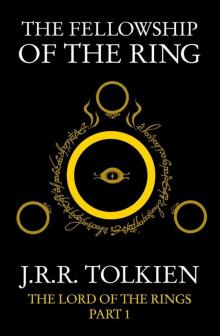 The Fellowship of the Ring
The Fellowship of the Ring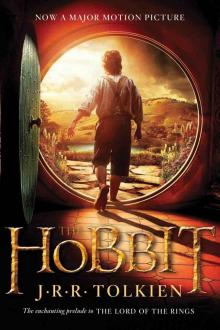 The Hobbit
The Hobbit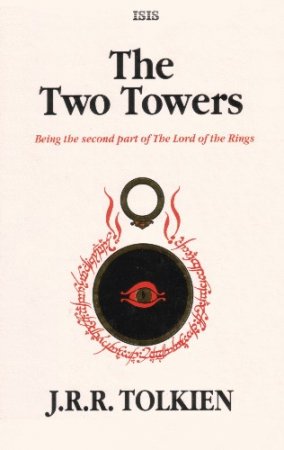 The Two Towers
The Two Towers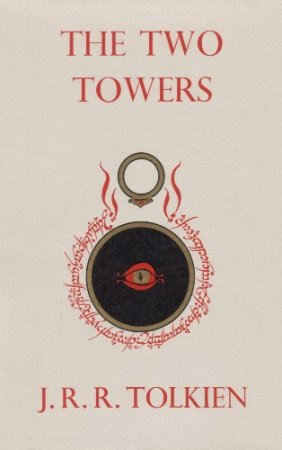 The Return of the King
The Return of the King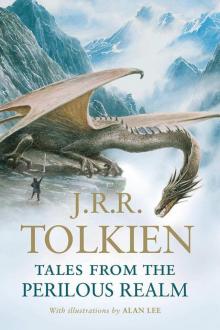 Tales From the Perilous Realm
Tales From the Perilous Realm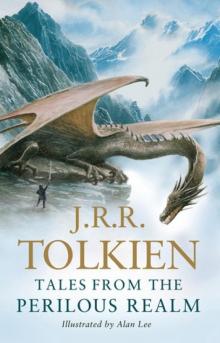 Leaf by Niggle
Leaf by Niggle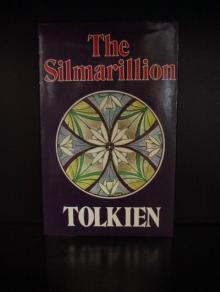 The Silmarillon
The Silmarillon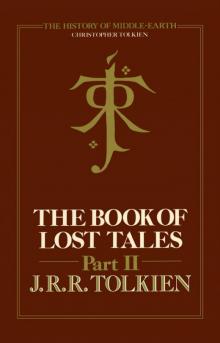 The Book of Lost Tales, Part Two
The Book of Lost Tales, Part Two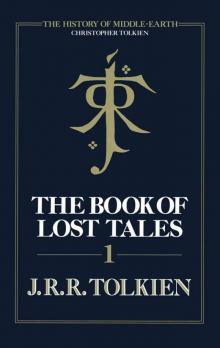 The Book of Lost Tales, Part One
The Book of Lost Tales, Part One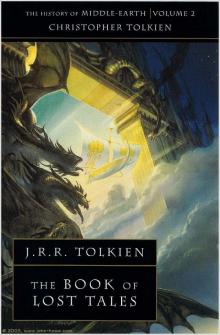 The Book of Lost Tales 2
The Book of Lost Tales 2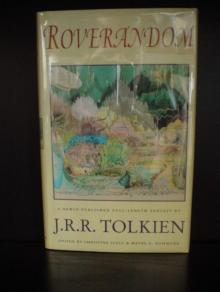 Roverandom
Roverandom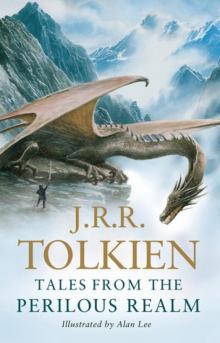 Smith of Wootton Major
Smith of Wootton Major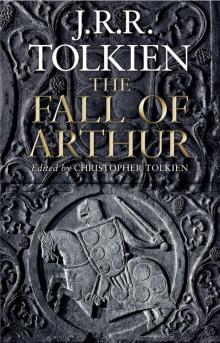 The Fall of Arthur
The Fall of Arthur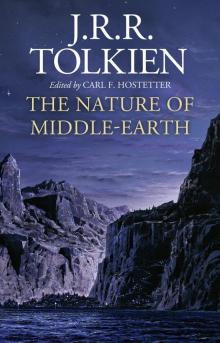 The Nature of Middle-earth
The Nature of Middle-earth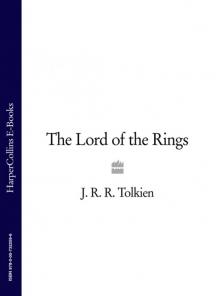 The Lord of the Rings: The Fellowship of the Ring, The Two Towers, The Return of the King
The Lord of the Rings: The Fellowship of the Ring, The Two Towers, The Return of the King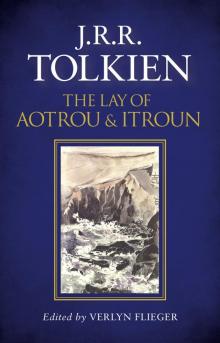 The Lay of Aotrou and Itroun
The Lay of Aotrou and Itroun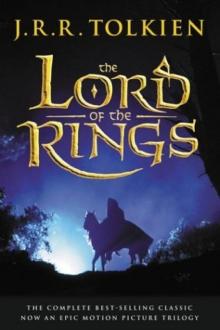 lord_rings.qxd
lord_rings.qxd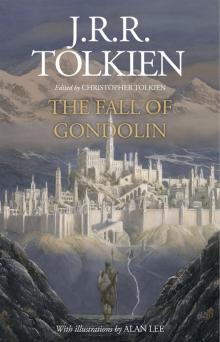 The Fall of Gondolin
The Fall of Gondolin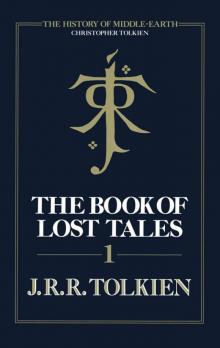 The Book of Lost Tales, Part 1
The Book of Lost Tales, Part 1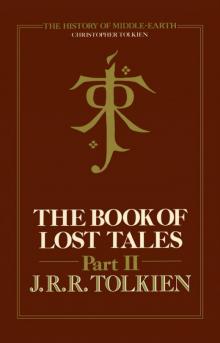 The Book of Lost Tales, Part 2
The Book of Lost Tales, Part 2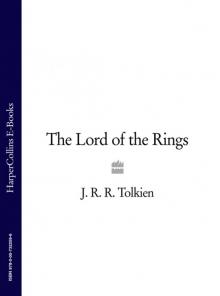 The Lord of the Rings
The Lord of the Rings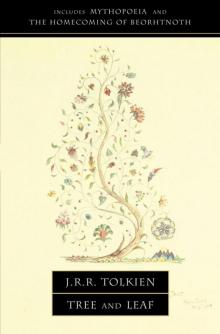 Tree and Leaf
Tree and Leaf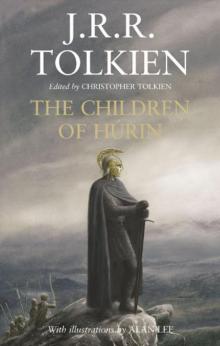 The Children of Húrin
The Children of Húrin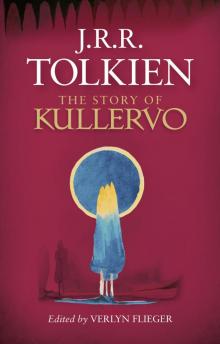 The Story of Kullervo
The Story of Kullervo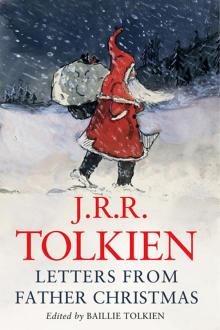 Letters From Father Christmas
Letters From Father Christmas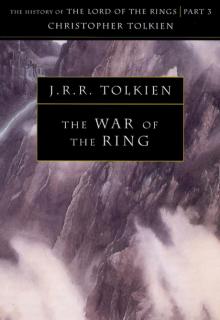 The History of Middle Earth: Volume 8 - The War of the Ring
The History of Middle Earth: Volume 8 - The War of the Ring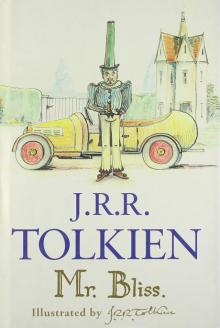 Mr. Bliss
Mr. Bliss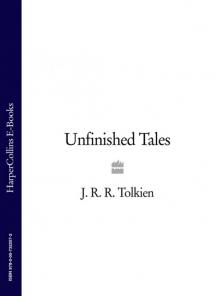 Unfinished Tales
Unfinished Tales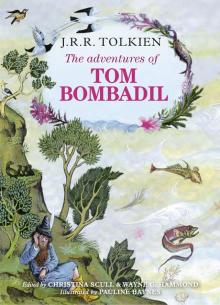 The Adventures of Tom Bombadil
The Adventures of Tom Bombadil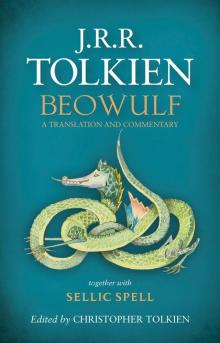 Beowulf: A Translation and Commentary, together with Sellic Spell
Beowulf: A Translation and Commentary, together with Sellic Spell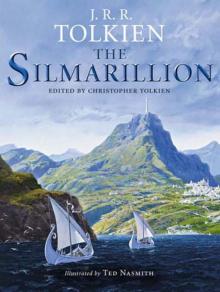 The Silmarillion
The Silmarillion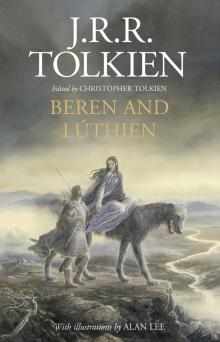 Beren and Lúthien
Beren and Lúthien